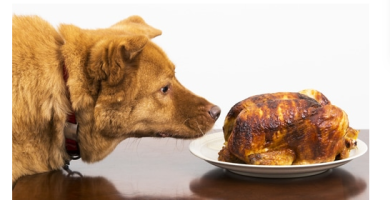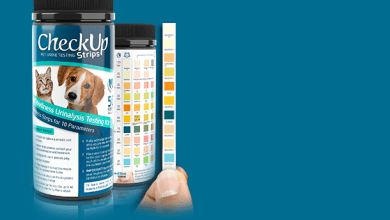How Often Should a Dog Poop? Understanding Your Pet’s Bowel Movements

How Often Should a Dog Poop? As a dog owner, you’re likely well aware of the importance of maintaining your furry friend’s health. One aspect of your dog’s health that can often go overlooked, however, is their bowel movements. Knowing how often your dog should be pooping is crucial for ensuring their digestive health and overall well being.
As a pet owner myself, I’ve experienced firsthand the frustration and worry that can come with changes in a dog’s bowel movements. Understanding what’s normal and what’s not can be confusing, especially if you’re a first-time dog owner. But don’t worry – in this blog post, I ‘ll dive into everything you need to know about how often your dog should be pooping and what you can do to keep their digestive system healthy. So, let’s get started!
The Digestive Process in Dogs
First thing first let’s take a look on how digestive systems works, knowing about it is really essential.
Dogs have a pretty simple digestive system – food goes from the stomach to the small intestine and then to the large intestine.
Along the way, enzymes and gut bacteria team up to break down the food and absorb the nutrients into the bloodstream. Once that’s done, your pup’s body gets rid of waste products through the rectum and anus.
Dr. Sarah Williams is a seasoned vet who knows a thing or two about pet health. She says that having a healthy digestive system is super important for your dog’s overall well-being. “Giving your dog a balanced diet that’s high in fiber and meets their nutritional needs is the foundation of a healthy digestive system,” she advises.
Don’t forget to make sure your furry friend drinks plenty of water, too. Dehydration can cause all sorts of bowel issues like constipation.

Factors That Affect When Dogs Poop After Eating
The timing and frequency of a dog’s bowel movements can be affected by several factors. These include age, size, diet, health, and exercise level. Puppies and senior dogs may have different digestive needs than adult dogs, and larger dogs may take longer to digest food than smaller dogs. Diet can also play a significant role in bowel movements, as well as the presence of any health issues or digestive problems.
- Constipation: This occurs when a dog has difficulty passing stool or has infrequent bowel movements. It may be caused by a lack of fiber in the diet, dehydration, or a medical condition such as an obstruction or an enlarged prostate gland. Constipation can cause discomfort and can lead to more serious health problems if left untreated.
This occurs when a dog’s stools are loose and watery. It may be caused by a sudden change in diet, food intolerance, bacterial or viral infection, or parasites. Diarrhea can lead to dehydration and electrolyte imbalances and may be a sign of a more serious underlying condition.
Inflammatory bowel disease (IBD): This is a chronic condition that causes inflammation in the lining of the digestive tract. It may cause diarrhea, vomiting, and weight loss. The cause of IBD is not fully understood, but it is thought to be related to an abnormal immune response to the normal bacteria in the gut.
Pancreatitis
This is an inflammation of the pancreas, which can cause abdominal pain, vomiting, diarrhea, and loss of appetite. It may be caused by a high-fat diet or an underlying medical condition, and can be life-threatening if not treated promptly.
Colitis
This is an inflammation of the colon, which can cause diarrhea, abdominal pain, and blood in the stool. It may be caused by an infection, food intolerance, or an underlying medical condition such as IBD.
Intestinal obstruction: This occurs when a foreign object or mass blocks the digestive tract, preventing food from passing through. It can cause vomiting, diarrhea, and abdominal pain, and can be life-threatening if not treated promptly.
Megacolon
This is a condition in which the colon becomes enlarged and loses its ability to contract, leading to chronic constipation. It may be caused by nerve damage, certain medications, or an underlying medical condition.
Parasites
Various parasites such as roundworms, hookworms, and tapeworms can cause digestive issues in dogs, including diarrhea, vomiting, and weight loss. They can also lead to more serious health problems if left untreated.
How Often Should a Dog Poop?
I didn’t answer this question at the beginning of this article because I wanted you to understand the basics of dog digestion. Now that we’ve covered that, let’s talk about how often a dog should poop. While there’s no set timeframe, most dogs will typically defecate within 30 minutes to an hour after eating.
However, every dog is different and some may have irregular bowel movements or take longer. It’s important to pay attention to your dog’s habits and individual needs to determine their regular bowel schedule.
For instance, puppies and senior dogs may have different digestive requirements than adult dogs. Additionally, larger breeds may take longer to digest food than smaller breeds. Here are some popular dog breeds and their general characteristics:
- Labrador Retriever: This breed is known for being friendly, energetic, and highly trainable. They are prone to overeating, which can lead to digestive issues such as diarrhea and constipation.
- German Shepherd: These dogs are intelligent and loyal, often used as police or military working dogs. They may have sensitive stomachs and are prone to gastrointestinal problems such as bloating and pancreatitis.
- Golden Retriever: These dogs are affectionate and easy to train. They have a tendency to eat quickly, which can cause digestive issues such as vomiting and diarrhea.
- Bulldog: Bulldogs are known for their stocky build and wrinkled faces. They may have trouble digesting certain foods and are prone to flatulence, constipation, and other digestive issues.
- Poodle: This breed is highly intelligent and hypoallergenic, making them a popular choice for people with allergies. They may have sensitive stomachs and are prone to food allergies and digestive issues.
Abnormalities in Dog Bowel Movements
If your dog is experiencing irregular bowel movements or has not pooped in more than 24 hours, it’s important to take action.
Constipation, diarrhea, and other digestive issues can be signs of underlying health problems. Consult with your veterinarian if you notice any abnormalities in your dog’s bowel movements.
Tips for Managing Dog Bowel Movements
If you want your dog to maintain regular bowel movements, consider the following tips:
- Establish a consistent feeding schedule
- Provide plenty of water to keep your dog hydrated
- Monitor your dog’s diet to ensure they are getting the nutrients they need
- Take your dog for regular walks and provide opportunities for exercise
- Provide a comfortable and stress-free environment for your dog
- Understanding Your Dog’s Regular Schedule
One of the best ways to manage your dog’s bowel movements is to understand their regular schedule. Pay attention to when your dog typically poops and how often they go.
This can help you identify any changes in their bowel movements and address potential issues before they become more serious. Like I said every dog is unique and may have different bowel habits
What to Do if Your Dog is Not Pooping Regularly
If you notice that your dog is not pooping regularly or has any changes in their bowel movements, don’t panic! It’s essential to take action and consult with your veterinarian.
They can help you identify any underlying health issues and develop a personalized treatment plan that suits your dog’s needs. Sometimes, simple changes to your dog’s diet or exercise routine can make a big difference in improving their digestive health.
On a lighter side, I can recall a neighbour’s pet dog refusing to poop during our daily walk. I tried to encourage him and even walked an additional mile, but he refused! It was aggravating at the time, but I subsequently discovered that stress and anxiety can also have an impact on a dog’s bowel movements. So I made sure to provide him with a calm and comfortable atmosphere as well as regular exercise to keep him happy and healthy.
How Diet Affects Dog Bowel Movements
Plenty of foods are great for promoting good health in dogs, but some can be harmful to their digestive systems. It’s crucial to understand the right types of foods to feed your furry friend to maintain a healthy digestive system.
A well-balanced diet that contains high-quality proteins, healthy fats, and complex carbohydrates is ideal for dogs. Foods rich in fiber are also beneficial, as they help regulate digestion and prevent constipation. Some good examples of high-fiber foods for dogs include fruits and vegetables like sweet potatoes, pumpkin, and apples.
However, it’s important to be aware of certain foods that can be dangerous to dogs. For instance, foods that contain high levels of fat, salt, or sugar can upset their stomachs and cause diarrhea or vomiting. Other foods that are toxic to dogs include chocolate, onions, grapes, and avocado, among others.
The Importance of Consistent Exercise
Regular exercise can also help your dog maintain regular bowel movements. Exercise promotes healthy digestion and can prevent constipation. Aim to take your dog for at least one walk per day, and provide opportunities for additional exercise and playtime.
Conclusion and Final Thoughts
Maintaining your dog’s digestive health is crucial for their overall wellbeing. By understanding your dog’s regular schedule and paying attention to any changes in their bowel movements, you can identify potential issues and seek veterinary care if necessary. With the right diet, exercise, and veterinary care, you can help your furry friend maintain regular and healthy bowel movements.





